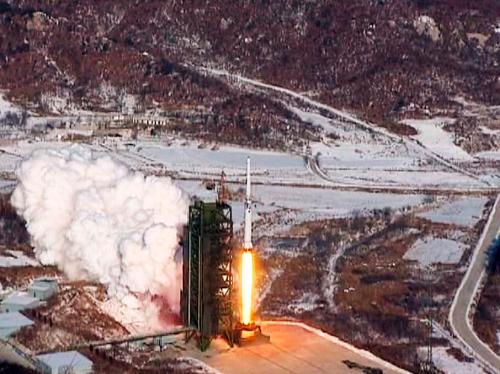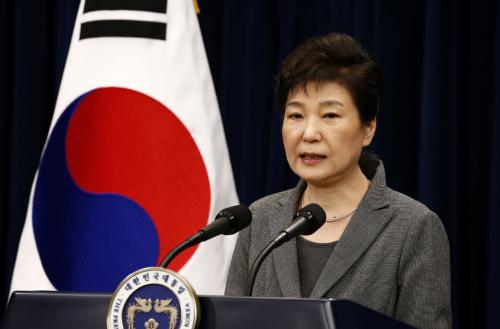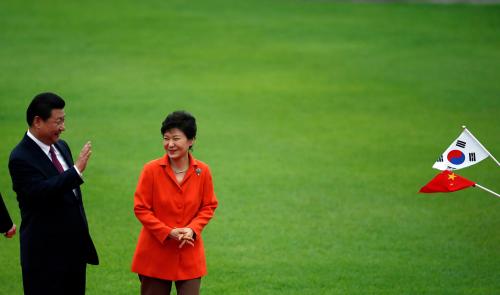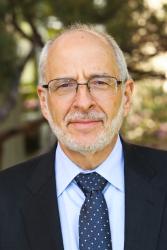This post, originally published on the afternoon of December 20, predicted that Saenuri—South Korea’s ruling party—was about to fracture between factions loyal or opposed to the impeached president, Park Geun-hye. On Wednesday morning in Seoul, the struggle for control in the party culminated in a decision by pro-Park forces not to accept Yoo Seong-min of the anti-Park faction as the party’s new leader. As a result, 35 members of the anti-Park coalition announced that they would formally withdraw from Saenuri on December 27 and form a new conservative party that would nominate its own presidential candidate. The withdrawal decision further upends the political landscape in advance of next year’s presidential election, adding to the domestic upheaval that Korea is likely to experience over the coming year.
Many baby boomers consider Neil Sedaka’s 1962 song “Breaking Up Is Hard to Do” among the classics of American pop music. The beleaguered but deeply divided leaders of Saenuri, South Korea’s ruling party, seem determined to demonstrate otherwise.
In the aftermath of President Park Geun-hye’s impeachment by the National Assembly, the party remains sharply split between those loyal to President Park, and those intent on distancing the party (and themselves) from the president’s tainted legacy. The struggle seems likely to culminate this week, as rival political factions jostle for control in advance of the 2017 election, which (depending on the verdict of the Constitutional Court on the impeachment charges) will most likely occur next summer.
The anti-Park faction has designated Yoo Seong-min, an economist and one-time close ally of President Park, as its preferred candidate for party leadership. But Park loyalists, led by Chung Woo-taik, Saenuri’s floor leader and acting chairman, are balking at Yoo’s selection, arguing that someone not currently in the party and not serving in the National Assembly would be far preferable. Politics in Korea is deeply personal, and highly malleable. Beyond a basic left-right divide, political parties coalesce, divide, and rebrand with ample regularity, often linked to a particular leader.
Speculation on an alternative candidate in Saenuri focuses primarily on U.N. Secretary General Ban Ki-moon, who will return to Korea next month following completion of his U.N. term, and appears to entertain presidential ambitions. However, in remarks late last week at the Council on Foreign Relations, Ban unambiguously distanced himself from President Park, declaring that millions of citizens “were very much frustrated and angry about the complete lack of good governance…they believed that the trust on and for the leadership of the country was betrayed.” Should Ban decide to enter the domestic political arena, it will not be as leader of a party still nominally led by Park Geun-hye.
If Park loyalists are not prepared to concede party leadership to Yoo (who is also a prospective presidential candidate), Saenuri seems virtually certain to split. The only question is which faction heads for the exits first, and the anti-Park forces seem the much more probable candidates. Yoo is expected to join forces with Kim Moo-sung, who mobilized sufficient votes within Saenuri in opposition to President Park to ensure her impeachment.
If Saenuri does indeed fracture, the battle for political identity in next year’s presidential election will have begun in earnest, and Neil Sedaka might need to contemplate new lyrics for his much beloved song.






Commentary
The news from Seoul: South Korean politicians will soon prove that breaking up is not so hard to do
December 20, 2016